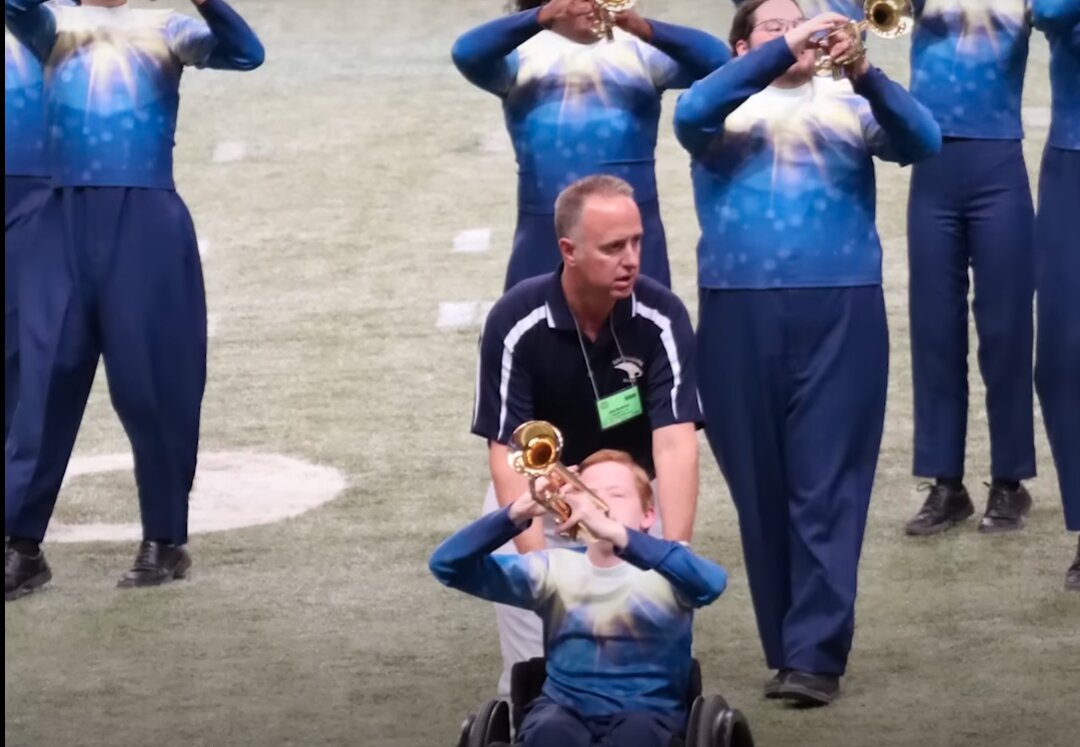One high school band director made his student’s dream come true.
Casey Hubbard, 16, has been playing the trumpet since he was in seventh grade and wanted to join a band at his high school like his brother. His sights were specifically set on Southmoore High School in Oklahoma, according to “Good Morning America.”
Hubbard also uses a wheelchair and was born with spina bifida, which is a condition that affects the formation of the spine.
Because of his limitations, he revealed that he didn’t expect to be able to march.
“So I guess that…was my dream, to be able to get on the field and march with the rest of the band,” he added.
Adam Mewhorter, a teacher and the director of bands at Southmoore High School, noticed Hubbard had a passion for music and wanted to help him cultivate it.
“I remember seeing years ago there was a video of a dad who had pushed his son around the field and that stuck with me for many years,” Mewhorter recalled.
Mewhorter added that he “obviously” has seen students in wheelchairs in band programs “many times” but they’re usually just at the “front of the band.”
“A lot of times they’ll just play their instruments set by them and I remember thinking, ‘I feel like we could probably do a little more,'” he explained.
Proverbs 18:16 says, “A man’s gift makes room for him and brings him before the great.”
Hubbard shared that he thought his wheelchair would hold him back from having “a regular marching season” and he would be on the sidelines.
“But my director, he literally asked me, ‘What do you want to do for high school?’ And I was like, ‘Well, I want to be on the field with everybody else and I want to be able to march.’”
Hubbard said his director made that happen.
Mewhorter signed up to be the one to push Hubbard on the football field and made sure his student was never left out.
“Every year, I’ve kind of stepped up. There’s been times in the last two years‘ shows where there wasn’t a place to go in the field and [we’d] have to hang on the sidelines for something to happen, then I could get back out there. This year’s goal was to never leave the field and so we did not,” Mewhorter explained.
After trial and error, Mewhorter helped Hubbard excel at his movements after studying other students’ movements on computer program charts.
“What’s cool about our art, we can explore, ‘How do we want them to move around the field? What do we want that to look like?’” he said of the process.
Hubbard looks forward to future marching band competitions and performances and is “really excited.”
“I’m sure it’s gonna be a lot of fun,” he said.
Mewhorter hopes that he can inspire other teachers to do the same thing with their students.
“I think this has gotten a little attention which is cool, a little embarrassed by it, but [if] other educators go, wait a minute, ‘It’d be awesome for that to just be more often,’ I think that would be a neat side product of this,” he shared.

























 Continue with Google
Continue with Google